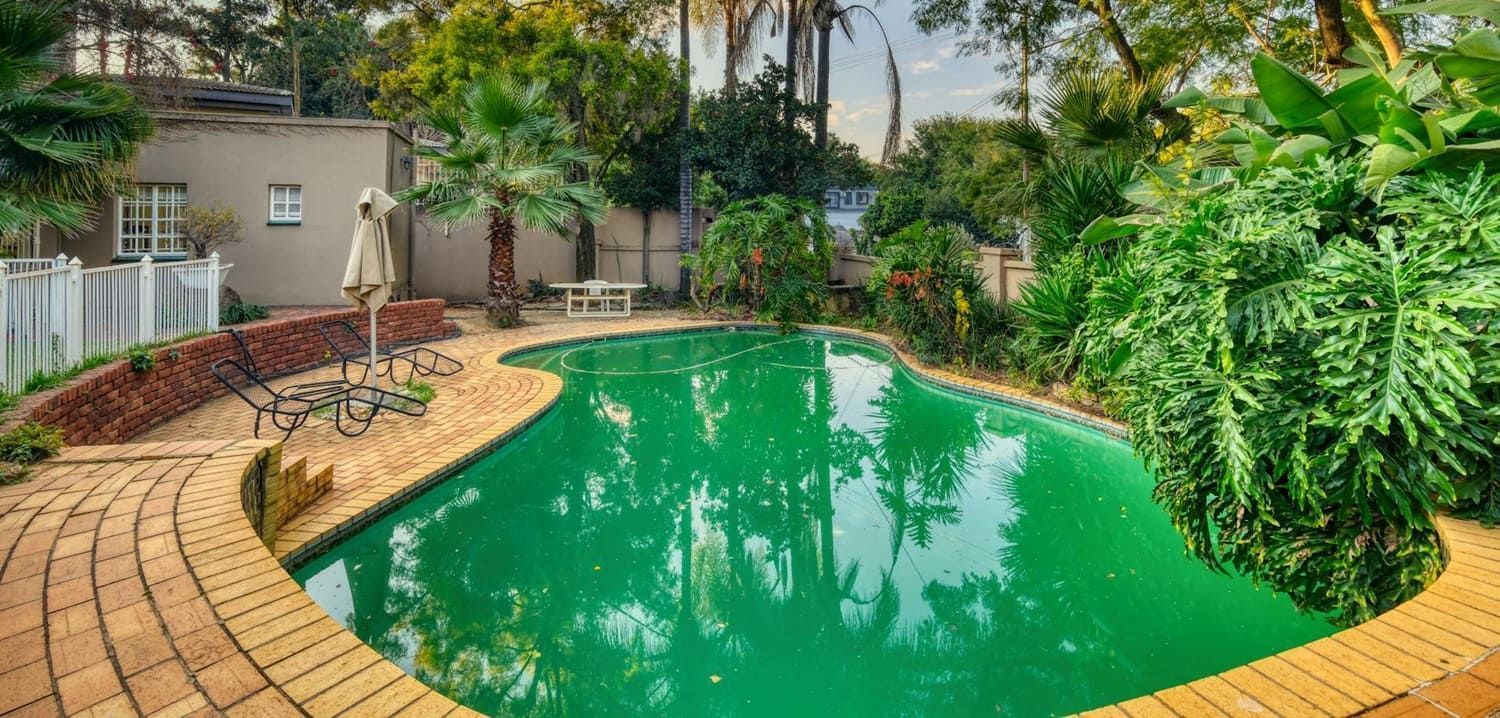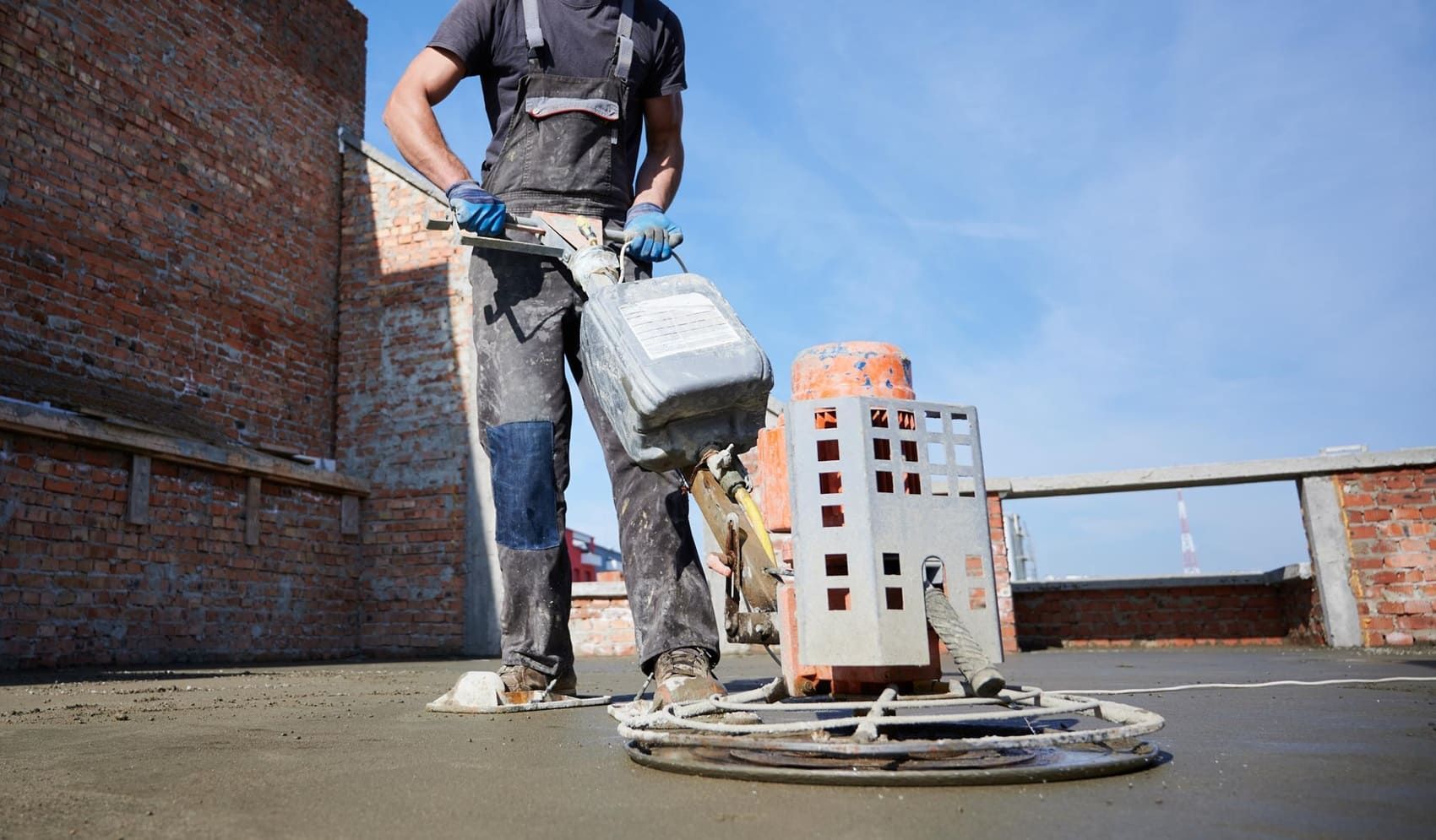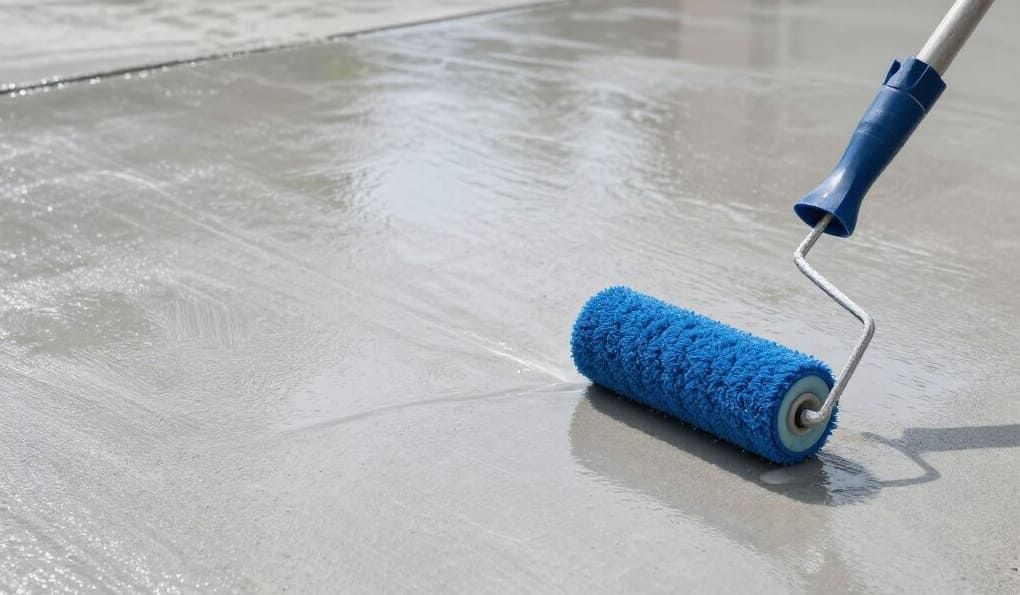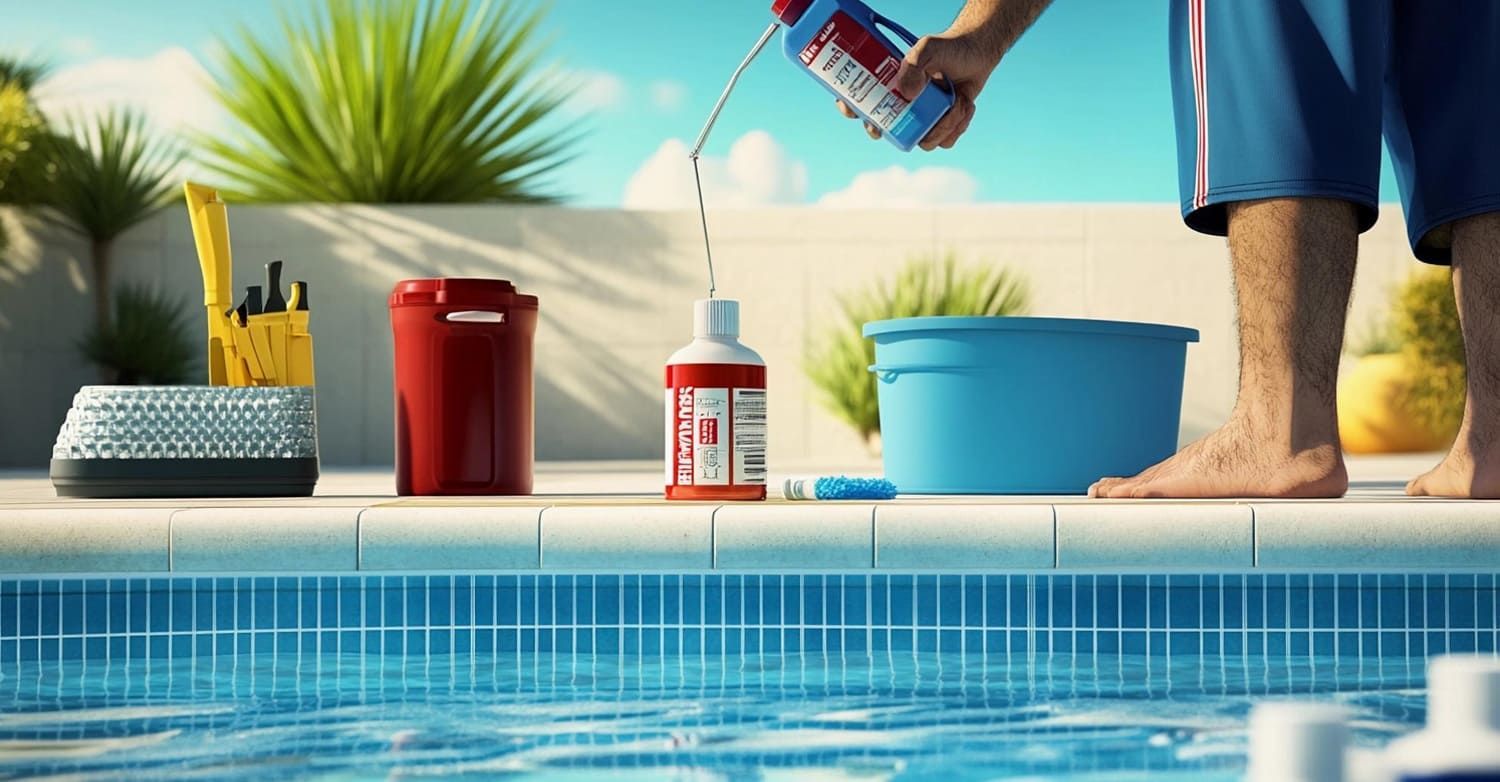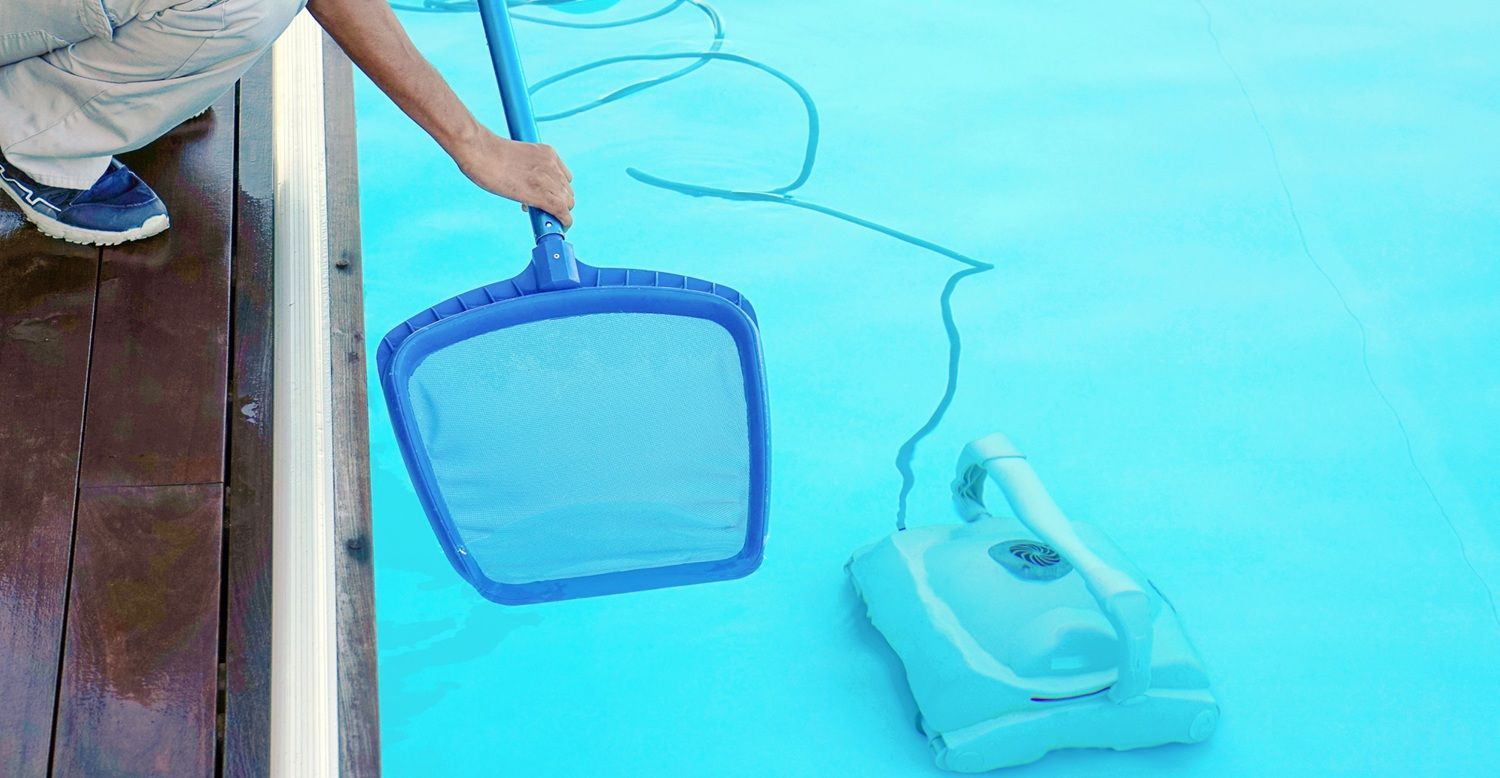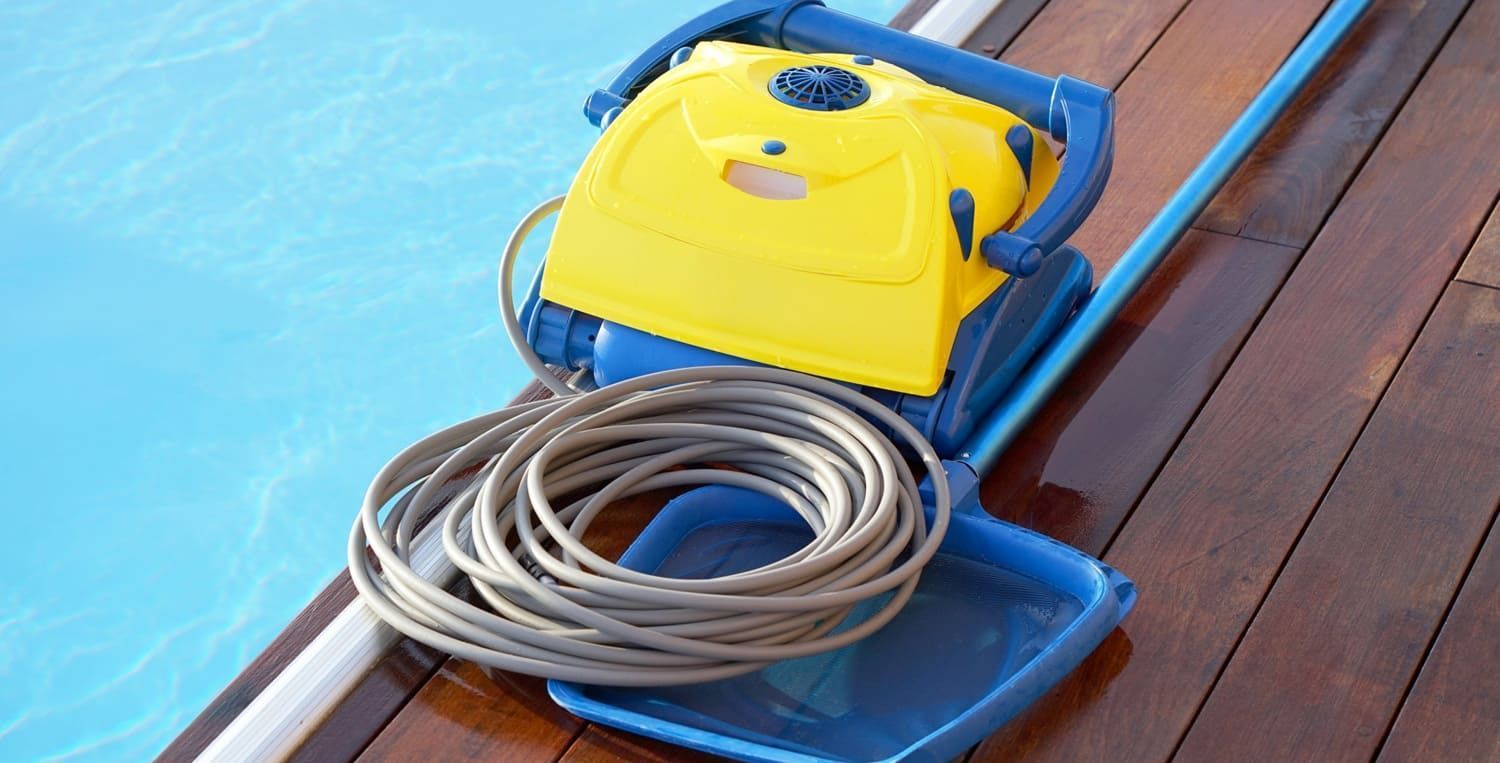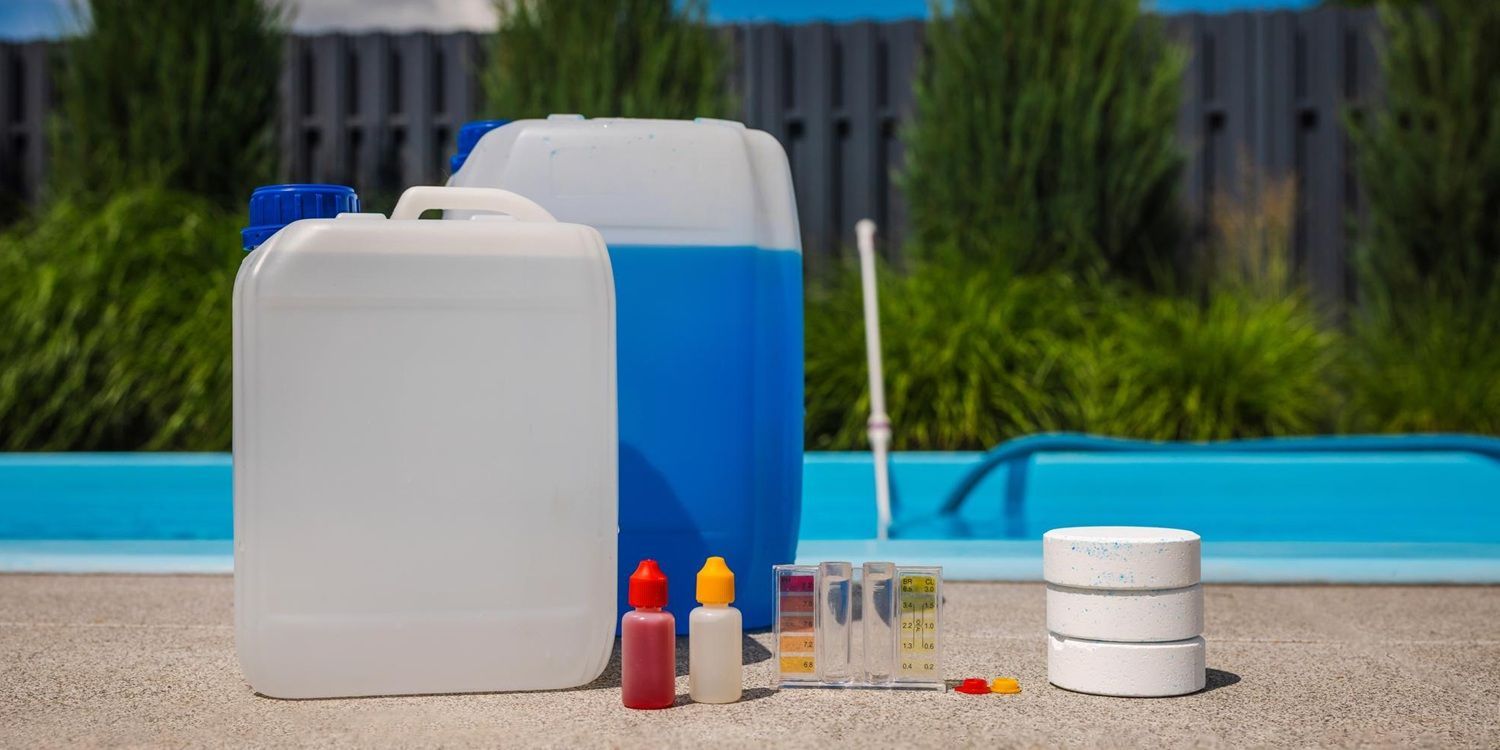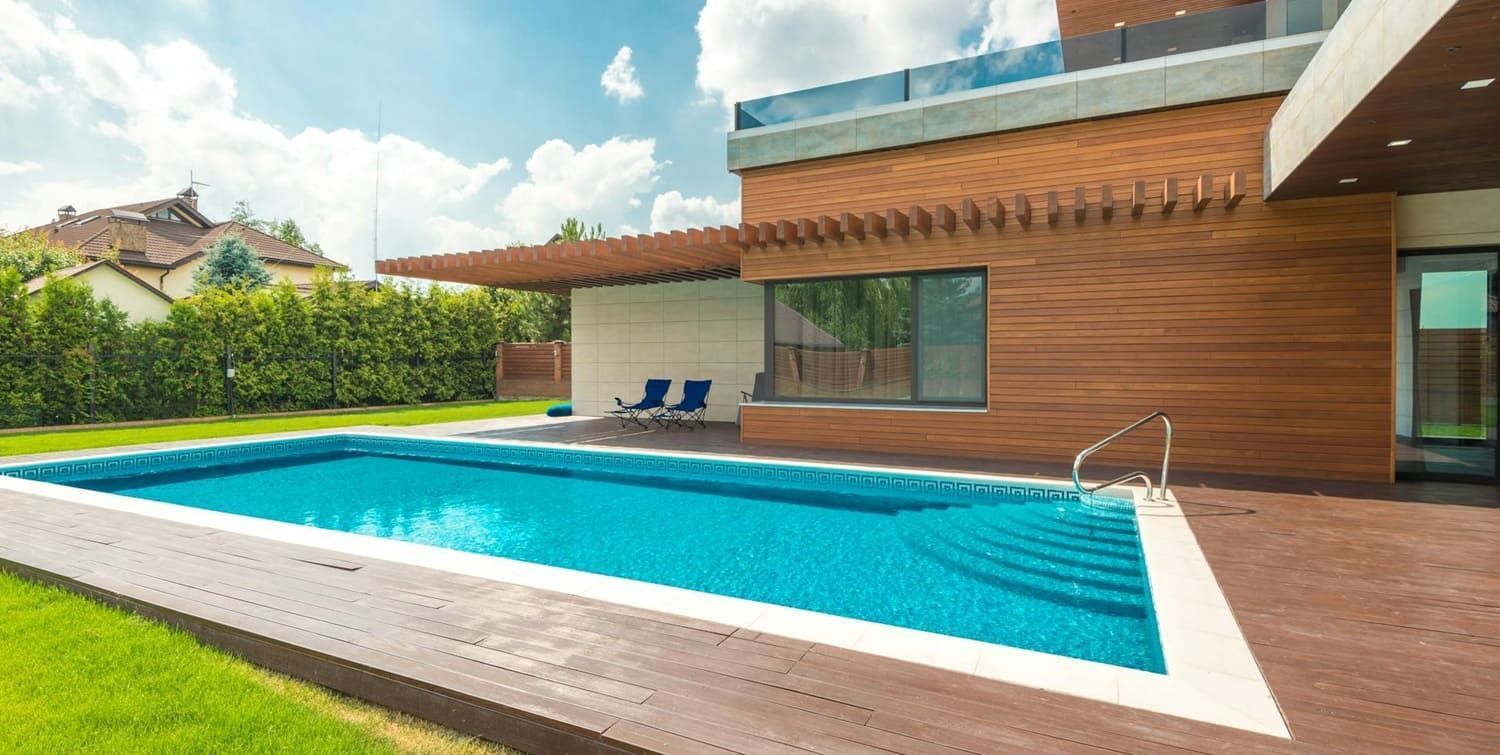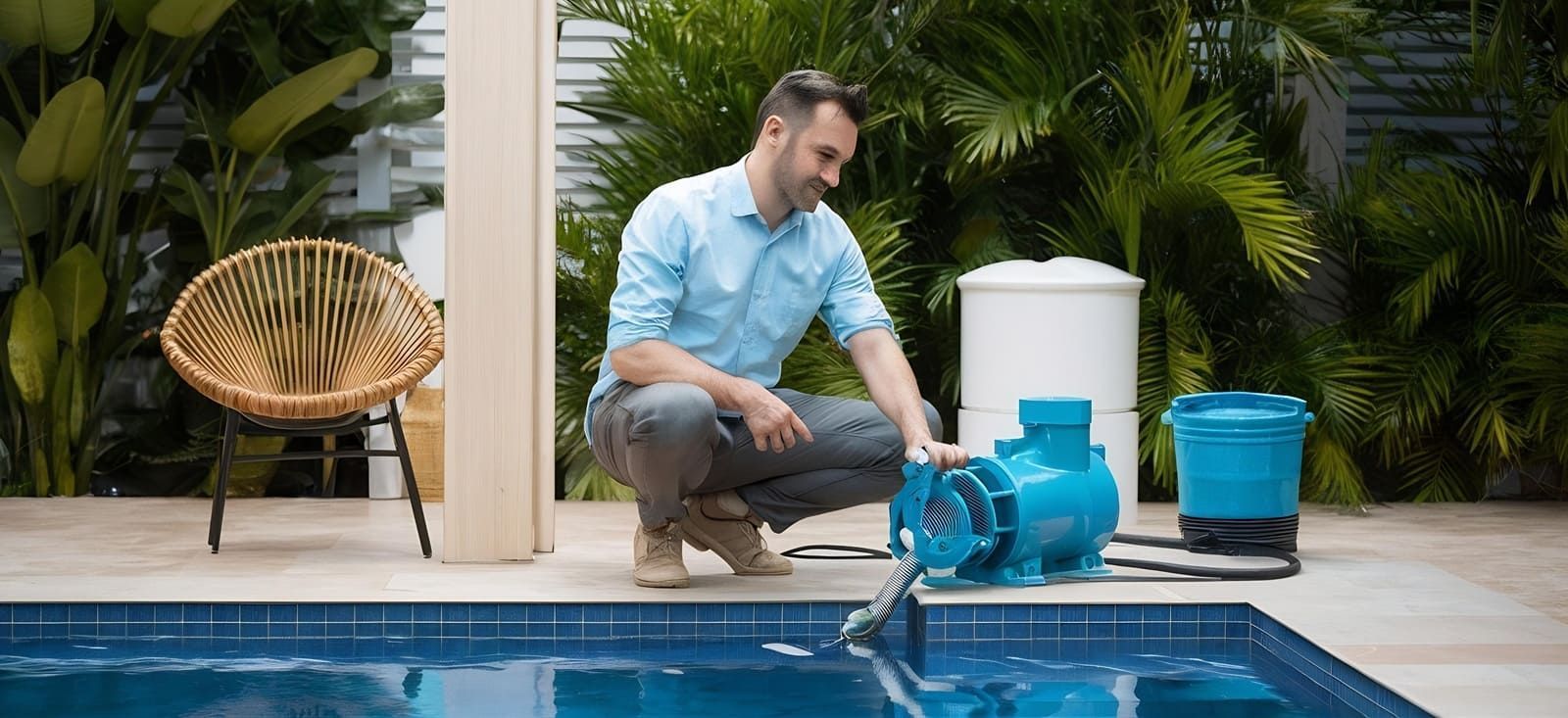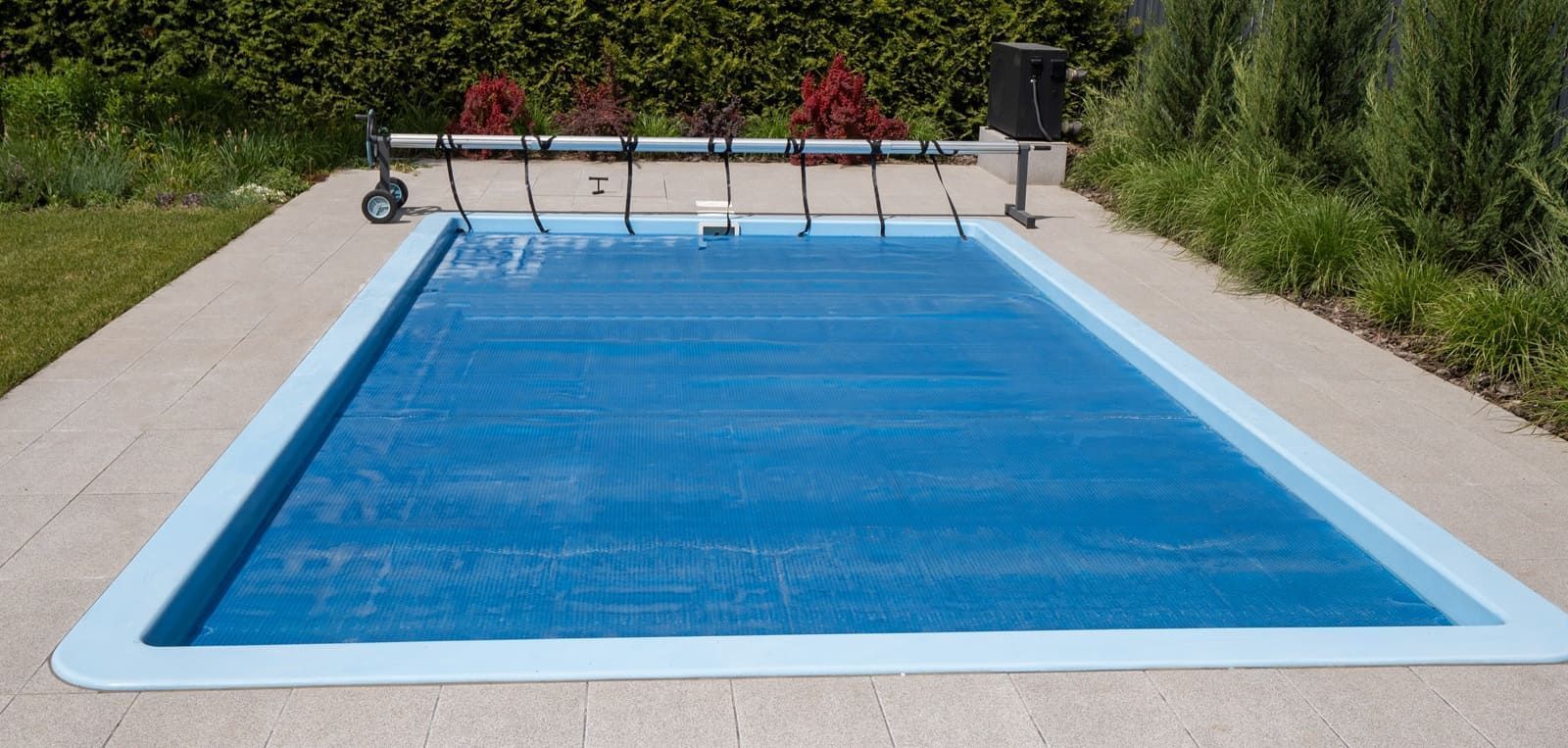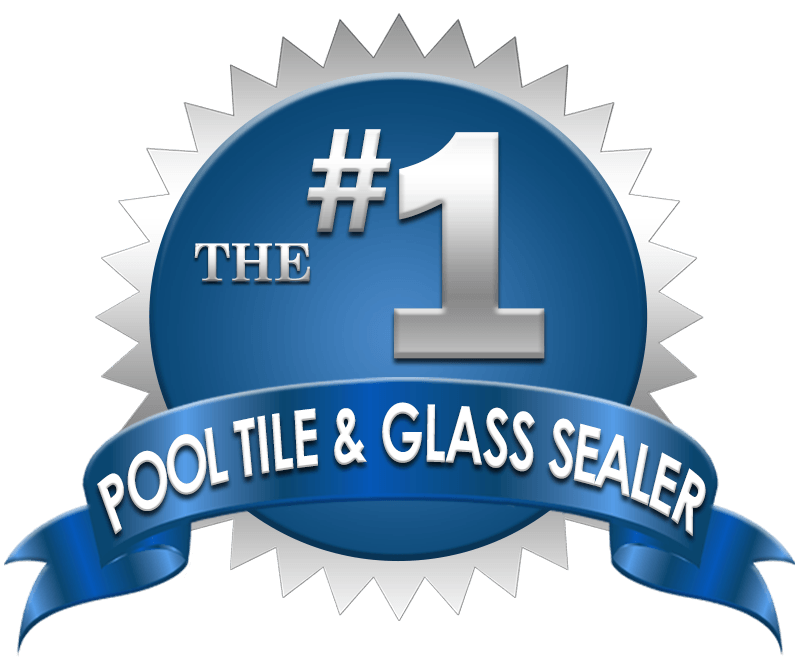Pool Filter Cleaners: What to Use and When
Maintaining a clean and healthy swimming pool is a top priority for any pool owner. Ensuring that your pool filter is functioning effectively is a crucial aspect of pool maintenance. Over time, filters can become clogged with debris, impacting their efficiency and the overall cleanliness of your pool. This is where pool filter cleaners come into play. In this article, we'll discuss the types of pool filter cleaners available, how to use them, and when it's the right time to do so.
Before diving into pool filter cleaners, it's important to understand the different types of pool filters. There are three main types: sand, cartridge, and diatomaceous earth (DE) filters. Each type has its own maintenance needs and cleaning requirements.
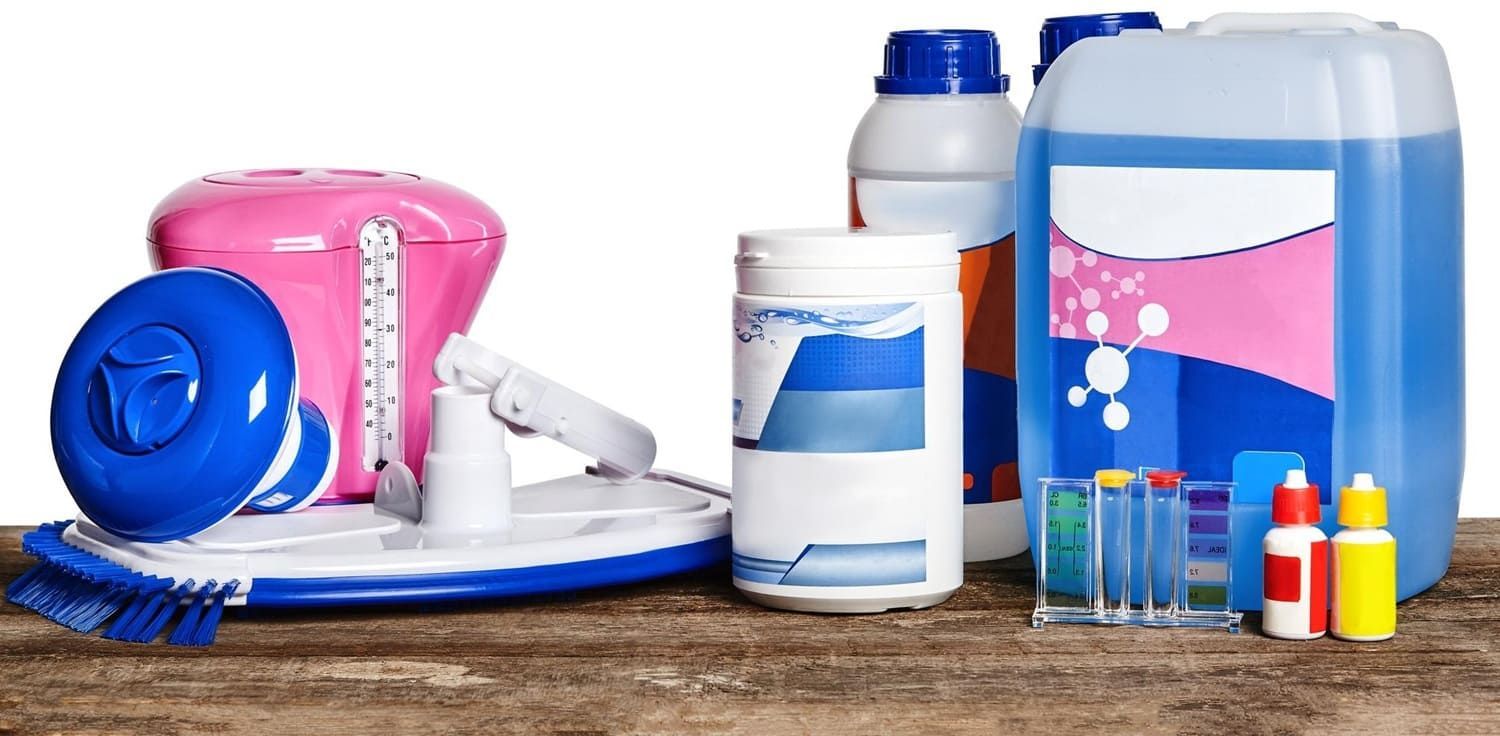
Sand Filters
Sand filters are one of the most popular types of pool filters due to their simplicity and effectiveness. They use a bed of specially graded sand to trap particles as water flows through. The sand acts as a natural filtering agent, catching debris and particles, which prevents them from re-entering the pool. While they are easy to maintain, they require periodic backwashing to clean out the trapped debris. Over time, the sand can become compacted and less effective, necessitating the use of a pool filter cleaner to rejuvenate its filtering capability.
In addition to backwashing, sand filters may require a complete sand change every 3 to 5 years, depending on usage and water conditions. This is because the sand grains can become rounded and less effective at trapping particles. Using a specialized granular cleaner periodically can help extend the life of the sand by breaking down oils and other debris that accumulate in the filter media.
Cartridge Filters
Cartridge filters are known for their ease of use and high filtration capacity. They consist of a cylindrical cartridge made of pleated fabric that traps dirt and debris as water passes through. These filters need to be removed and hosed down regularly to maintain efficiency. The pleated design offers a large surface area for capturing particles, which makes them highly efficient.
When simple rinsing isn't enough to remove accumulated oils and minerals, a specialized pool filter cleaner may be required. Liquid cleaners are particularly effective for this purpose, as they can penetrate deep into the fabric to dissolve stubborn residues. It's also important to inspect the cartridge for any signs of wear or damage during cleaning, as a damaged cartridge can significantly reduce the effectiveness of your pool's filtration system.
In terms of maintenance, cartridge filters should be cleaned every 4-6 weeks, depending on pool usage and environmental conditions. It's also advisable to have a spare cartridge on hand, so you can swap them out during cleaning for minimal downtime.
DE Filters
DE filters use a fine powder made from fossilized algae called diatomaceous earth to coat grids inside the filter. This powder provides a very fine level of filtration, capable of trapping extremely small particles. DE filters are renowned for their superior filtration but are more complex to maintain than sand or cartridge filters.
Cleaning DE filters involves a multi-step process that includes backwashing to remove used DE powder and trapped debris. After backwashing, the grids must be removed, cleaned, and recoated with fresh DE powder. Liquid cleaners can be used to soak the grids, dissolving oils and minerals that regular cleaning might miss. This process ensures that the filter operates at peak efficiency. In addition to regular maintenance, it's important to monitor the pressure gauge on a DE filter. An increase in pressure usually indicates that the filter is clogged and requires cleaning. DE filters should be backwashed monthly and recharged with DE powder to maintain optimal performance.
Types of Pool Filter Cleaners
Depending on the type of filter you have, there are various pool filter cleaners available on the market. Selecting the right one is crucial for maintaining your pool's health.
Liquid Cleaners
Liquid pool filter cleaners are a popular choice for cartridge and DE filters. These cleaners are typically used to soak the filter elements, dissolving oils, minerals, and other contaminants that can clog the fabric or grids. They are excellent for deep cleaning when regular rinsing is insufficient, helping to restore the filter's efficiency.
To use a liquid cleaner, the filter elements are usually removed from the housing and placed in a container filled with a cleaning solution. The soaking process allows the cleaner to penetrate the filter media, breaking down stubborn residues. After soaking, it's important to rinse the elements thoroughly to remove any remaining cleaner and debris before reinstalling them.
Liquid cleaners are available in various formulations, some of which are designed to be more environmentally friendly. When selecting a cleaner, consider the specific needs of your filter type and any manufacturer recommendations.
Granular Cleaners
Granular cleaners are commonly used for sand filters. These cleaners help break down oils, algae, and other debris that accumulate in the sand over time. They are typically added directly to the filter system and then flushed out through backwashing, which helps to rejuvenate the sand's filtering capacity.
The use of granular cleaners can extend the life of the sand, delaying the need for a complete sand change. They are particularly useful in dealing with heavy loads of organic material, such as during peak swimming season or in pools with high bather loads. Regular use of granular cleaners can help maintain optimal water clarity and filtration efficiency. When using a granular cleaner, it's important to follow the manufacturer's instructions regarding the amount to use and the duration of the cleaning process. Overuse or incorrect application can lead to ineffective cleaning or even damage to the filter system.
Spray Cleaners
Spray cleaners are convenient for quick cleaning of cartridge filters. They come in spray bottles and are applied directly to the filter element, targeting surface oils and dirt. While they may not be as effective for deep cleaning as soaking with a liquid cleaner, they are ideal for interim cleanings.
Spray cleaners are easy to use and can be applied without removing the filter from the system, making them a time-saving option for busy pool owners. They work by loosening surface contaminants, which can then be rinsed away with a hose. This method is particularly useful for maintaining filter efficiency between more thorough cleanings.
When using a spray cleaner, it's important to ensure even coverage of the filter surface to achieve the best results. Some spray cleaners also include additional features, such as conditioners that help extend the life of the filter media.
When to Use Pool Filter Cleaners
Knowing when to use pool filter cleaners is key to keeping your pool in optimal condition. Here are some signs that it might be time to clean your filter:
Reduced Water Flow
If you notice a decrease in water flow from your pool jets, it could be a sign that your filter is clogged and needs cleaning. Reduced flow can affect water circulation and filtration, leading to cloudy water. Regular monitoring of water flow can help you catch this issue early.
A sudden drop in flow rate might also indicate a more severe clog or mechanical issue within the filter system. In such cases, a thorough inspection and cleaning of the filter elements are recommended. Keeping an eye on the flow rate can also help you gauge the effectiveness of your cleaning routine and adjust it as necessary.
Maintaining optimal water flow is crucial not only for filtration but also for the even distribution of chemicals, which helps maintain water balance and prevent algae growth.
Increased Filter Pressure
Most pool filters have a pressure gauge. If the pressure reading is higher than normal, it indicates that the filter is working harder than it should be. This is a clear sign that cleaning is necessary, as increased pressure can strain the system and reduce its lifespan.
High pressure can be caused by a variety of factors, including clogged filter media, excessive debris, or even a malfunctioning gauge. Regularly checking the pressure gauge and understanding the normal operating range for your filter type can help you identify when cleaning is needed. It's important to address high pressure promptly to prevent damage to the filter system.
In addition to cleaning, regular maintenance should include checking for leaks, ensuring proper water levels, and verifying that all components are functioning correctly. These practices can help maintain consistent pressure levels and prolong the life of your pool equipment.
Cloudy Water
Cloudy pool water is often a result of poor filtration. If your water remains murky despite regular chemical treatments, it might be time to clean your filter. Cloudy water can harbor bacteria and algae, making it essential to address the issue promptly.
There are several potential causes of cloudy water, including insufficient filtration, high bather loads, or chemical imbalances. Regular cleaning of the filter is a key component in resolving and preventing cloudiness. Additionally, ensuring that your pool's chemical levels are within recommended ranges can enhance filtration effectiveness.
If cleaning the filter does not resolve the cloudiness, consider consulting a pool professional to assess other potential issues, such as circulation problems or equipment malfunctions. Keeping the water clear not only enhances the pool's appearance but also ensures a safe swimming environment.
Regular Maintenance
Even if you don't notice any immediate issues, regular cleaning is an essential part of pool maintenance. As a rule of thumb, cartridge filters should be cleaned every 4-6 weeks, sand filters should be backwashed every 1-2 months, and DE filters should be backwashed monthly and recharged with DE powder.
Establishing a routine maintenance schedule can help prevent problems before they arise. It's also important to adjust your cleaning frequency based on factors such as pool usage, environmental conditions, and seasonal changes. For example, pools in areas with high pollen counts or heavy foliage may require more frequent cleaning.
Regular maintenance not only improves water quality but also extends the life of your pool equipment, reducing the need for costly repairs or replacements. By staying proactive, you can enjoy a clean and inviting pool all season long.
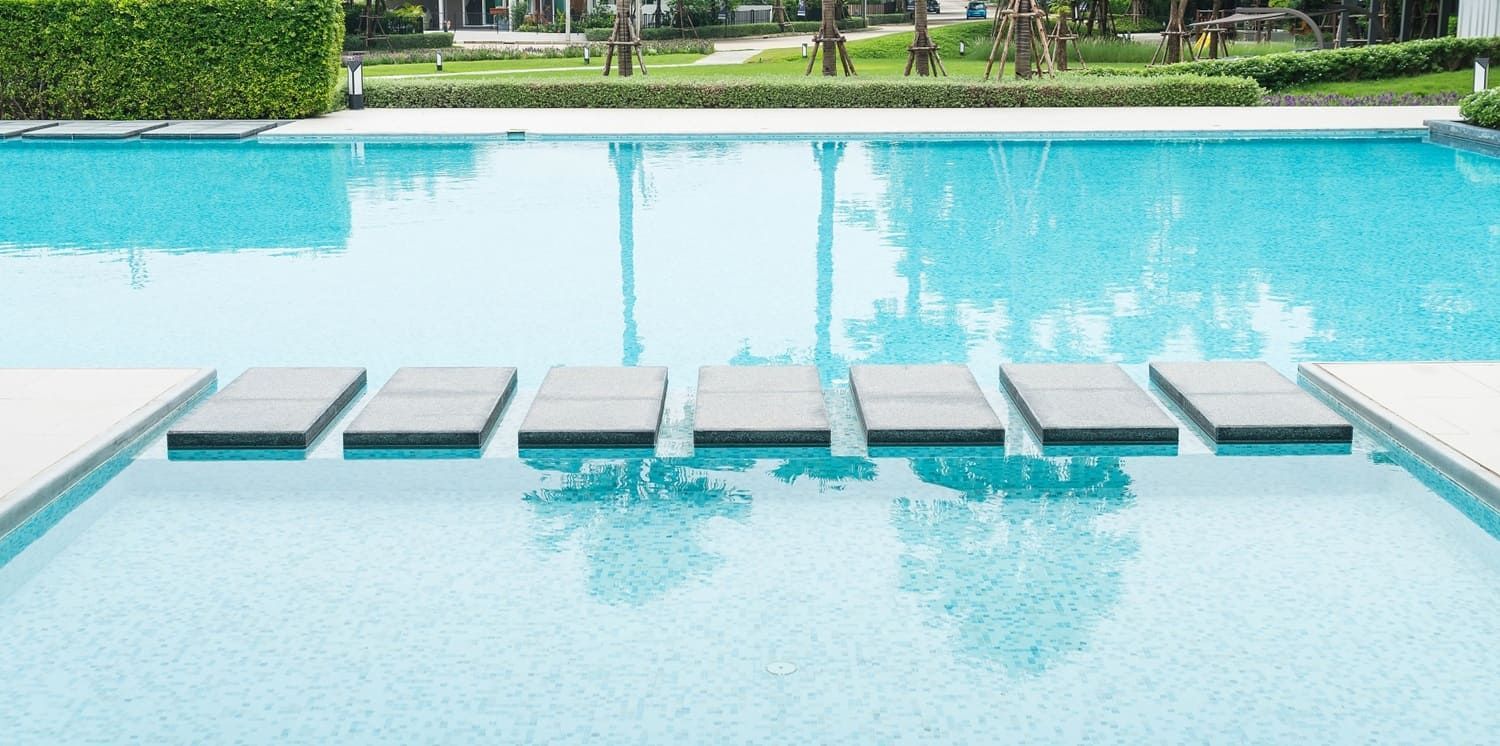
How to Use Pool Filter Cleaners
Cleaning Sand Filters
- Backwash the Filter: Begin by turning off the pump and setting the filter valve to backwash. This process reverses the flow of water through the filter, flushing out trapped debris. Turn the pump back on and let it run for 2-3 minutes or until the water in the sight glass is clear.
- Add Granular Cleaner: With the pump off, open the skimmer lid and add the recommended amount of granular cleaner into the skimmer basket. The cleaner will dissolve and be distributed through the sand, breaking down oils and debris.
- Rinse and Repeat: After allowing the cleaner to work for the specified time, set the valve to rinse and run the pump for a minute to clear any remaining cleaner. Finally, return the valve to the filter position and resume normal operation.
Cleaning Cartridge Filters
- Remove the Cartridge: Turn off the pump and carefully open the filter housing. Remove the cartridge, taking care not to damage the pleats or end caps.
- Rinse the Cartridge: Use a garden hose with a spray nozzle to thoroughly rinse the cartridge, removing any loose debris. Work from top to bottom, ensuring all areas are clean.
- Soak in Liquid Cleaner: Place the cartridge in a bucket with a mixture of water and liquid cleaner. Follow the product instructions for the correct ratio and soaking time, typically several hours.
- Rinse and Reinstall: After soaking, rinse the cartridge thoroughly to remove any remaining cleaner. Inspect for damage or wear before reinstalling it in the filter housing. Ensure the housing is securely closed before restarting the pump.
Cleaning DE Filters
- Backwash the Filter: Begin by turning off the pump and setting the filter valve to backwash. Allow it to run for a few minutes to remove used DE powder and debris.
- Remove Grids: Open the filter tank and carefully remove the grids. Handle them gently to avoid damage.
- Soak in Liquid Cleaner: Place the grids in a large container filled with a solution of water and liquid cleaner. This step helps dissolve oils, minerals, and any DE residue.
- Rinse and Reassemble: After soaking, rinse the grids thoroughly to remove all traces of cleaner. Reassemble the filter, ensuring all components are correctly aligned. Add fresh DE powder according to the manufacturer's instructions before resuming normal operation.
Conclusion
Regular cleaning and maintenance of your pool filter are essential for ensuring a clean and healthy swimming environment. WithLayorCare Pool & Patio Protection , offering the
best pool cleaning products on the market, you can easily maintain your pool’s clarity and hygiene all season long.
By understanding the types of pool filter cleaners available and knowing when and how to use them, you can keep your pool in top condition and extend the life of your filtration system. A well-maintained pool not only looks inviting but also provides a safer and more enjoyable swimming experience for everyone.
Consistent care and attention to your pool's filtration system will enhance your overall swimming experience and help you enjoy a crystal-clear pool year-round.
Contact LayorCare Pool & Patio Protection if you need any help choosing the right
pool cleaning products or maintenance solutions—we’re here to help you keep your pool looking its best.
FAQs About Pool Filter Cleaners
What is the best pool filter cleaner?
The best pool filter cleaner depends on your specific filter type and cleaning needs. For cartridge filters, liquid cleaners like those from LayorCare Pool & Patio Protection work exceptionally well by soaking deep into the pleated fabric to dissolve oils, minerals, and stubborn debris. Sand filters benefit most from granular cleaners that break down accumulated oils and algae within the sand bed, extending its filtering life. DE filters require specialized liquid cleaners that can effectively clean the delicate grids without causing damage. When selecting a cleaner, choose products specifically formulated for your filter type, avoid harsh chemicals that can degrade filter media, and look for professional-grade solutions that offer deep cleaning power while being safe for all pool surfaces and equipment.
How often should I clean my pool filter?
Pool filter cleaning frequency varies by filter type and usage conditions. Cartridge filters should be cleaned every 4-6 weeks during swimming season, with more frequent cleaning needed during heavy use or in areas with high debris loads. Sand filters require backwashing every 1-2 months to flush out trapped debris and maintain optimal flow rates. DE filters need monthly backwashing and recharging with fresh diatomaceous earth powder to maintain their superior filtration capabilities. Beyond these general guidelines, monitor your filter pressure gauge regularly—when pressure increases 8-10 PSI above the clean baseline, it's time to clean regardless of schedule. Environmental factors like heavy pollen, frequent storms, or high bather loads may require more frequent cleaning to maintain crystal-clear water and efficient filtration.
How do you clean a cartridge pool filter?
Cleaning a cartridge pool filter involves a simple multi-step process that restores filtration efficiency. First, turn off your pool pump and carefully open the filter housing to remove the cartridge element. Rinse the cartridge thoroughly with a garden hose using a spray nozzle, working from top to bottom between each pleat to remove loose debris. For deep cleaning, prepare a soaking solution using a quality liquid pool filter cleaner mixed with water in a large bucket or container. Submerge the cartridge completely and let it soak for several hours or overnight, allowing the cleaner to dissolve oils, sunscreen residue, and mineral deposits. After soaking, rinse the cartridge thoroughly until water runs clear, inspect for any tears or damage, and reinstall it in the housing. Using premium filter cleaning products from LayorCare ensures your cartridge is thoroughly cleaned and ready for optimal performance.
When should I backwash my sand filter?
Backwash your sand filter when the pressure gauge reads 8-10 PSI higher than the normal clean pressure, typically every 1-2 months during regular pool use. Additional backwashing is necessary after heavy pool usage, severe weather events, or when you notice reduced water flow from return jets. The backwashing process reverses water flow through the filter, flushing out trapped debris and contaminants that accumulate in the sand bed. To backwash effectively, turn off the pump, set the multiport valve to backwash position, run the pump for 2-3 minutes until the sight glass shows clear water, then switch to rinse for one minute before returning to normal filter operation. Using granular pool filter cleaners periodically between backwashing helps break down oils and organic matter that regular backwashing can't remove, extending sand life and maintaining peak filtration efficiency.
What causes high pool filter pressure?
High pool filter pressure occurs when debris, oils, and contaminants accumulate in the filter media, restricting water flow and forcing the pump to work harder. Common causes include clogged filter cartridges filled with dirt and oils, compacted sand in sand filters that needs backwashing, or DE filter grids coated with excessive debris. Environmental factors like heavy pollen seasons, nearby construction dust, or frequent storms can accelerate filter clogging. High bather loads introduce body oils, sunscreen, and lotions that quickly clog filters. A malfunctioning pressure gauge can also give false high readings. When pressure rises 8-10 PSI above your baseline clean pressure, it's time to clean your filter immediately. Ignoring high pressure can strain your pump motor, reduce water circulation, lead to cloudy water, and potentially damage expensive pool equipment. Regular cleaning with quality pool filter cleaners prevents pressure buildup and maintains optimal system performance.
Can I use vinegar to clean my pool filter?
While white vinegar can be used as a mild cleaning agent for pool filters, it's not as effective as specialized pool filter cleaners for removing stubborn oils, minerals, and organic buildup. Vinegar works reasonably well for dissolving calcium deposits and light mineral scaling on cartridge filters when diluted with water in a 1:1 ratio for soaking. However, vinegar lacks the powerful degreasing agents found in professional filter cleaners that effectively remove sunscreen, body oils, and other organic contaminants. For occasional light cleaning between deep cleanings, vinegar is an acceptable budget option, but for optimal filter performance and longevity, invest in quality pool filter cleaning products like those from LayorCare Pool & Patio Protection. These specialized cleaners are formulated specifically for pool filter media, work faster and more effectively, and won't leave residues that could affect water chemistry or filtration efficiency.
How long should I soak my pool filter cartridge?
Soak your pool filter cartridge in a liquid cleaner solution for 4-8 hours for routine cleaning, or overnight (8-12 hours) for heavily soiled filters with significant oil and mineral buildup. The soaking time allows the cleaning solution to penetrate deep into the pleated fabric, breaking down stubborn contaminants that simple rinsing cannot remove. For best results, use a large bucket or trash can that fully submerges the cartridge, and follow the manufacturer's recommended dilution ratio for the cleaning product. After soaking, rinse the cartridge thoroughly with a garden hose until water runs clear and no cleaner residue remains. Never rush the soaking process—inadequate soaking time means oils and minerals remain embedded in the fabric, reducing filtration efficiency and shortening cartridge life. Having a spare cartridge allows you to rotate them during cleaning, ensuring your pool maintains continuous filtration while one cartridge soaks.
What is the difference between liquid and granular pool filter cleaners?
Liquid and granular pool filter cleaners serve different filter types and cleaning purposes. Liquid cleaners are designed primarily for cartridge and DE filters, working by soaking filter elements to dissolve oils, minerals, sunscreen residue, and organic buildup that penetrates deep into fabric pleats or DE grids. They provide thorough deep cleaning and are ideal for removing stubborn contaminants that regular rinsing cannot eliminate. Granular cleaners are specifically formulated for sand filters, added directly to the filter system where they break down oils, algae, and debris trapped within the sand bed. The granules dissolve and work through the sand during normal filtration, then flush out during backwashing. Liquid cleaners require removing filter elements for soaking, while granular cleaners work in-place without disassembly. Both types from LayorCare Pool & Patio Protection are essential for maintaining optimal filter performance, but choosing the right one depends entirely on your filter type and specific cleaning needs.
Why is my pool still cloudy after cleaning the filter?
Cloudy pool water persisting after filter cleaning indicates additional underlying issues beyond just a dirty filter. Common causes include imbalanced water chemistry—particularly low chlorine levels, high pH, or incorrect alkalinity—that prevents proper sanitization. Insufficient filtration time means your pump isn't running long enough to circulate and filter all the water, typically requiring 8-12 hours daily. Dead algae from recent treatment can overwhelm even a clean filter, requiring extended filtration and possibly clarifier products. High calcium hardness or total dissolved solids create cloudiness that filtration alone cannot resolve. A damaged or worn filter cartridge with tears or compressed pleats won't filter effectively even when clean. Additionally, poor water circulation from blocked return jets or skimmers prevents proper filtration. After cleaning your filter, test and balance all water chemistry parameters, run your pump continuously for 24-48 hours, and consider using a water clarifier. If cloudiness persists, consult pool professionals to diagnose equipment or water quality issues.
How do I clean DE filter grids?
Cleaning DE filter grids requires careful handling and thorough cleaning to maintain their delicate structure and superior filtration capability. Start by backwashing the filter to remove used DE powder and trapped debris, then turn off the pump and carefully open the filter tank. Remove the grid assembly, taking care not to damage the fabric or frames. Spray each grid thoroughly with a garden hose to remove remaining DE powder and visible debris. For deep cleaning, prepare a large container with water and liquid pool filter cleaner, then submerge the grids completely and soak for several hours or overnight. This dissolves oils, minerals, and organic buildup that regular rinsing cannot remove. After soaking, rinse each grid thoroughly until water runs clear, inspect for tears or damage, and reassemble the filter carefully. Add fresh DE powder according to manufacturer specifications before resuming normal operation. Using quality filter cleaning products from LayorCare ensures your DE grids are properly maintained for optimal filtration performance.
What happens if you don't clean your pool filter?
Neglecting pool filter cleaning leads to progressively worsening problems that affect water quality, equipment performance, and maintenance costs. Clogged filters restrict water flow, causing reduced circulation that results in cloudy water, uneven chemical distribution, and dead spots where algae can grow. High filter pressure forces your pump motor to work harder, increasing energy costs and potentially causing premature pump failure or motor burnout. Dirty filters lose filtration efficiency, allowing particles and contaminants to recirculate into your pool, making water unsafe and uninviting. Over time, embedded oils and minerals permanently damage filter media, requiring expensive cartridge replacements or complete sand changes. Poor filtration also means you'll use more chemicals trying to maintain water clarity, increasing operational costs. Bacteria and algae thrive in poorly filtered water, creating health hazards for swimmers. Regular filter cleaning with quality products from LayorCare Pool & Patio Protection prevents these issues, extends equipment life, maintains crystal-clear water, and saves money on repairs and chemical costs.
How do I know when to replace my pool filter instead of cleaning it?
Replace your pool filter when cleaning no longer restores proper function or when the filter media shows signs of permanent damage. For cartridge filters, replace when you notice tears, holes, crushed pleats, or fabric that remains discolored and stiff after thorough cleaning—typically every 2-3 years with proper maintenance. Sand filters need complete sand replacement every 3-5 years when the sand becomes compacted, channeled, or rounded, reducing filtration effectiveness even after backwashing and chemical cleaning. DE filter grids require replacement when fabric tears, frames crack, or the material becomes brittle and deteriorated, usually every 5-7 years. Additional replacement indicators include persistent high pressure readings after cleaning, cloudy water that won't clear despite balanced chemistry, reduced water flow that cleaning doesn't improve, and visible calcium deposits or mineral scaling that won't dissolve. If your filter is more than 10 years old regardless of type, consider replacement as materials degrade over time. Investing in quality replacement filters and maintaining them with LayorCare products maximizes their lifespan and performance.
Recent Posts
